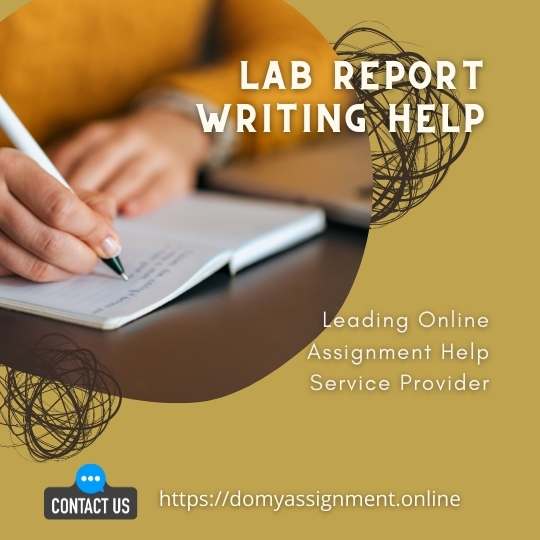The lab report writing process can be overwhelming, especially when you have little experience writing and no idea where to begin. With so many steps involved, it’s easy to feel like you don’t know what to do next or that your lab report isn’t going to turn out well—or, at all! If this sounds familiar, don’t worry! There are lots of tips and tricks you can use to create an excellent lab report, regardless of the subject matter or your academic level.

Need help writing your lab report? Check out our top tips and tricks for creating a successful report!
If you’re struggling to write your lab report, you’re not alone! Sometimes creating a high-quality report can be more difficult than performing the lab experiment itself, but it doesn’t have to be that way! After spending hours in the lab pouring over data, you deserve a little help! That’s why we’ve decided to create this blog post on Lab Report Writing Help with some helpful hints and tips that will make writing your next report as easy as pie! Don’t forget to check out our top tips in our infographic below.
How Do I Know If I Need To Write My Own Lab Report?
You may be wondering if you need to write your own lab report. The answer is: it depends. If you are assigned to write a report for a class, you will likely need to write it yourself. However, if you are working in a lab as part of your job, you may be able to get away with simply recording your data and observations.
How Long Should My Final Draft Be?
The length of your final draft will depend on the requirements of your instructor or publication. However, a good rule of thumb is to aim for about 1,000-1,500 words. This should give you enough space to thoroughly cover the material without being too long-winded.
What Are My Best Resources When Writing My First Draft?
There are many resources available to help you write a successful lab report.
First, consult your lab manual or instructor for guidance on what to include in your report.
Second, take careful notes during your experiment so that you can accurately record your data and observations later.
Third, use a template or outline to organize your thoughts and information before beginning to write. Fourth, proofread your final draft carefully to ensure accuracy and clarity.
Do I Need To Cite My Sources In APA Style If I Am Using Someone Else’s Protocol (Outline, Procedure)?
If you are using someone else’s protocol, you should cite your sources in APA style. This will give credit to the original author and will show that you have done your research. When citing a protocol, you should include the author’s name, the date of publication, and the URL of the source.
What Is Meant By Plagiarism In This Context And How Can I Avoid It?
When you are writing a lab report, it is important to avoid plagiarism. Plagiarism is when you use someone else’s work without giving them credit. This can be avoided by citing your sources, using direct quotes, and paraphrasing correctly.
Lab Report Generator
Are you struggling to write a lab report? Don’t worry, you’re not alone. Many students find themselves in the same situation.
Luckily, there are some things you can do to make the process easier.
First, make sure to read the instructions carefully. This will ensure that you know what is expected of you.
Next, take the time to gather all of the necessary information and data.
Chemistry Lab Report Help

If you’re having trouble writing your chemistry lab report, never fear! Here are some tips to help you get started:
1. First, consult your lab manual or textbook to find out what information needs to be included in your report.
2. Next, make sure you have all the necessary data and calculations before you start writing.
3. Once you have everything you need, start by outlining your report so that you know what order to present everything in.
• 3 Easy Steps for Writing Your Lab Report
• You deserve some help after hours in the lab
• Everything you need to know about Lab Report Writing
• Read our blog post and be confident when writing your next report
======
• Lab Report Writing Help: Stop Struggling
• Eliminate the Struggle
• Top Tips for Successful Lab Reports
• Why You Need Lab Report Writing Help
======
• Get Help Writing Your Lab Report!
• You don’t have to do it alone.
• Get Help Today
• Take a look at our tips in our infographic below
Science Lab Report Example

If you’re feeling overwhelmed by your science lab report, don’t worry! We’ve got you covered with our top tips and tricks for writing a successful report.
First, make sure to take careful and accurate notes during your experiment. This will be vital when it comes time to write up your results.
Second, be sure to organize your data in a clear and concise manner. This will make it much easier to interpret when you’re writing your report.
College Lab Report Format
If you’re in college and have been assigned to write a lab report, then you may be wondering what the proper format is. Luckily, we’ve got you covered. Here are the few essential elements of a college-level lab report:
1. Title page
2. Abstract
3. Introduction
4. Materials & Methods
5. Results
6. Discussion
7. Conclusion
8. References
How to Write a Lab Report Introduction: 5 Pro Tips
Lab Reports Examples

If you’re having trouble writing your lab report, don’t worry! We’ve got you covered with our top tips and tricks for creating a successful report.
1) Make sure to take good notes during the experiment so that you have a clear understanding of what happened.
2) Create an outline of the paper before diving into it to make sure everything is organized in a way that makes sense to readers and will be easy to follow along with.
3) Get feedback from other members on your team before submitting it to the professor so that they can point out any errors or areas where clarification is needed.
FAQ
- Can I get help writing a lab report?
Writing a lab report can be daunting, especially if you're not sure what to include. But never fear! We're here to help with our top tips and tricks for creating a successful report.
- What are the different parts of a lab report?
A typical lab report includes six sections: title, abstract, introduction, methods and materials, results, and discussion. Each section serves a different purpose in the overall communication of your findings.
- What is a lab report?
A lab report is a detailed document that provides information on the procedures, results, and discussion of an experiment or scientific research project. The purpose of a lab report is to communicate the findings of your research to other scientists and researchers. Here are some tips to help you write a successful lab report
